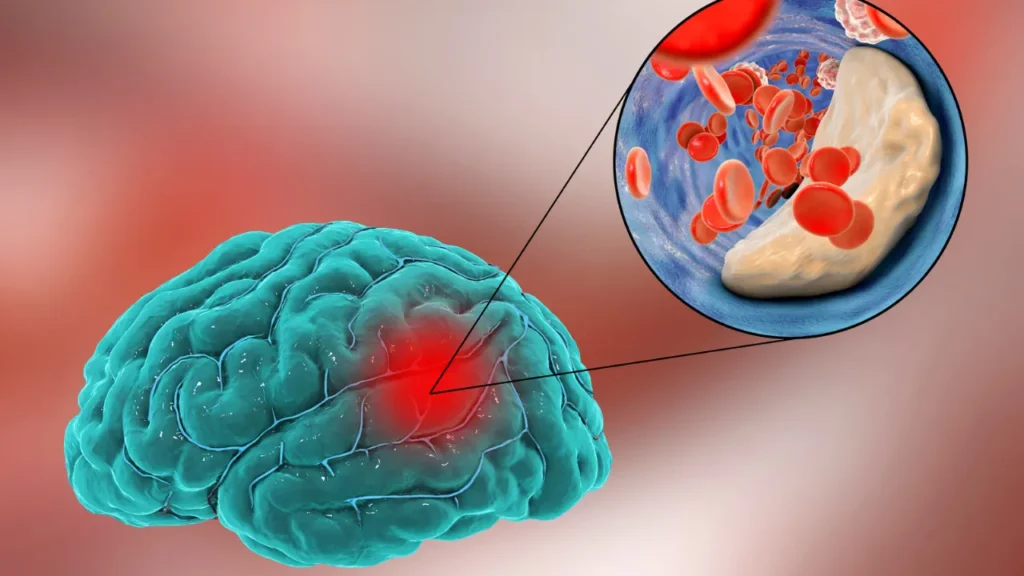Water dock (rumex aquaticus) is a perennial plant in the polygonaceae family, and is found throughout Asia and Europe. It flourishes in moist environments including ponds, marshes, and riverbanks. Due to the medicinal benefits of water dock, which are linked to the presence of bio-active substances such as anthraquinones, flavonoids, and tannins, it has been used for centuries in herbal medicine. The health advantages of water dock, which include antioxidant, anti-inflammatory, and antibacterial properties, have attracted scientific interest in recent years. This article will provide you with a thorough description of the properties of water dock, as well as its advantages for health, recommended dosage, negative effects, possible drug interactions, and responsible use.
You May Also Like:
ANISE: Benefits, Dosage, Side Effects, Drug Interactions, And Other Important Information
Water Dock: Benefits, Dosage, Side Effects, Drug Interactions, And Other Important Information is an original (NootropicsPlanet) article.
Nature of Water Dock
Water dock (rumex aquaticus) is a perennial herb with long, erect stems that can reach 1-2 meters in height. The plant has lance-shaped, pointy leaves that are green on the top and bluish-green on the bottom. Water dock‘s inflorescence consists of small, greenish blooms that mature into reddish-brown fruits. These fruits carry water-dispersed seeds, which contribute to the plant’s widespread dispersion in moist settings.
Water dock roots are thick and meaty, storing a high concentration of the plant’s medicinal chemicals. These roots are generally used for its therapeutic purposes and in nutritional supplements. Water dock has traditionally been ingested in the form of teas, tinctures, or powdered extracts prepared from the dried roots. Water dock supplements are now available in a variety of forms, such as capsules, tablets, and liquid extracts, making them more accessible for consumers.
Health Benefits of Water Dock
1. Digestive Health: Water dock’s laxative properties make it an effective treatment for constipation and other digestive issues. It can regulate bowel motions, reduce bloating, and provide stomach pain relief.
2. Anti-inflammatory Support: Water dock’s anti-inflammatory properties can help alleviate the symptoms of chronic inflammatory disorders such as arthritis, inflammatory bowel disease, and asthma.
3. Immune System Support: Water dock’s antibacterial properties make it an excellent supplement for immune system support. Water dock can help defend the body against illnesses and promote overall health by reducing the growth of dangerous bacteria, fungi, and viruses.
4. Cardiovascular Health: Water dock’s antioxidant properties can help reduce oxidative stress, which has been linked to the development of cardiovascular disorders such as atherosclerosis, hypertension, and heart failure. Water dock can also help maintain cardiovascular health by scavenging free radicals and lowering inflammation.
5. Neuroprotective Effects: Oxidative stress and inflammation play a role in the pathogenesis of neurodegenerative diseases including Alzheimer’s and Parkinson’s. Water dock’s antioxidant and anti-inflammatory properties can protect the brain from harm and prevent the progression of certain illnesses.

Chemistry of Water Dock
Water dock is rich in bio-active chemicals, which contribute to its medicinal properties. Anthraquinones, flavonoids, and tannins are the principal active ingredients. Due to their ability to induce intestinal motility, anthraquinones such as emodin and chrysophanol are responsible for water dock’s laxative properties. Flavonoids, such as quercetin and luteolin, have powerful antioxidant and anti-inflammatory properties that are essential for overall health. Tannins with astringent and antibacterial effects include catechin and epicatechin.
Physiological Properties of Water Dock
Water dock contains bio-active substances that work therapeutically on the body and brain through various different mechanisms:
1. Antioxidant Effects: The flavonoids in water dock, especially quercetin and luteolin, function as free radical scavengers, neutralizing reactive oxygen species (ROS), and lowering oxidative stress. Numerous chronic diseases, including cancer, cardiovascular disease, and neurological disorders are the culprits that cause oxidative stress. Water dock can stop the development and spread of many diseases by lowering oxidative stress.
2. Anti-inflammatory Effects: Water dock flavonoids reduce the production of pro-inflammatory cytokines such tumor necrosis factor-alpha (TNF-alpha) and interleukin-6 (IL-6). A transcription factor involved in controlling inflammation, nuclear factor kappa-B (NF-B), can also have its activity altered. Water dock helps treat inflammatory illnesses like arthritis, inflammatory bowel disease, and asthma by reducing inflammation.
3. Laxative Effects: The anthraquinones in water dock, particularly emodin and chrysophanol, increase the release of chloride and water into the intestinal lumen, stimulating intestinal motility. This causes the stool to soften and the intestinal transit time to lengthen, encouraging bowel movements and curing constipation.
4. Antimicrobial Effects: The tannins in water dock, including catechin and epicatechin, have antimicrobial properties that make them effective against a variety of harmful bacteria, fungi, and viruses. Tannins’ antimicrobial activity is related to their ability to bind to elements of microbial cell walls, which prevents cell development and throw off cellular metabolism.

Optimal Dosage of Water Dock
Depending on your age, weight, and overall state of health, the ideal dosage of water dock as a dietary supplement can change. There is no universally applicable dose advice. A usual recommendation is to begin with a low dose of dried water dock extract, perhaps 500–1000 mg daily, and then gradually raise the amount to gauge tolerance and attain the desired results. Before beginning any new supplement regimen, especially if you have current medical concerns or are using medications, you must speak with your healthcare provider.
Side Effects of Water Dock
When used in the recommended dosages, water dock is usually regarded as safe. However, while taking high doses, you can develop side effects like nausea, diarrhea, and abdominal pain. If consumed in excess or for a long time, the laxative effects of water dock may result in electrolyte imbalances and dehydration. To reduce these dangers when using water dock, it is critical to drink lots of water and keep up with a healthy diet.

Potential Substance Interactions with Water Dock
It is possible for water dock and other drugs and substances to interact. These interactions could lessen a drug’s effectiveness or make side effects worse. Among the possible interactions are:
1. Diuretics: When combined with diuretic drugs, water dock’s laxative effects can raise the risk of electrolyte imbalances and dehydration. Before taking water dock with diuretics, it is crucial to check fluid intake and electrolyte levels and speak with your healthcare provider.
2. Anticoagulants: Due to its anti-inflammatory and antioxidant properties, water dock can have blood-thinning effects. Anticoagulant drugs like warfarin, aspirin, or heparin may increase the risk of bleeding when taken together with water dock. If you take anticoagulant drugs, it’s crucial to talk to your healthcare provider before using water dock.
3. Anti-hypertensive Drugs: The anti-inflammatory and antioxidant effects of water dock can reduce blood pressure. Anti-hypertensive drugs and water dock can cause hypo-tension, or abnormally low blood pressure. Before using water dock with anti-hypertensive drugs, get medical advice from your doctor.
Responsible Use of Water Dock
It is critical to follow the following principles to guarantee the proper and safe use of water dock as a dietary supplement:
1. Before beginning any new supplement regimen, consult with a healthcare practitioner, especially if you have pre-existing medical conditions or are using medications.
2. Begin with a low dose and progressively raise it to determine tolerance and obtain your desired results.
3. Keep an eye out for negative side effects and adjust or stop treatment as needed.
4. Do not exceed the specified dosage, as doing so may result in side effects and significant health concerns.
5. Drink lots of water and eat a well-balanced diet to avoid dehydration and electrolyte imbalances when using water dock.
Water Dock:
Conclusion
While water dock confers many great health benefits, such as supporting your digestive system, immune system, and cardiovascular health, it is also very easy to fall victim to its negative side effects. The most important action you need to take before starting a water dock supplement is to speak to your doctor before starting it, and while you are on a water dock supplement, you must stay hydrated. Talk to your doctor about taking this supplement if you are interested in trying a natural remedy for any of the health concerns discussed in this article.

References:
- Flavonoids as antioxidants in Water Dock. Retrieved from: https://www.ncbi.nlm.nih.gov/pmc/articles/PMC1127522/ (Pietta, P. G. (2000). Flavonoids as antioxidants. Journal of Natural Products, 63(7), 1035-1042.)
- The role of anthraquinones in the laxative effects of Water Dock. Retrieved from: https://www.ncbi.nlm.nih.gov/pmc/articles/PMC5620615/ (Izzo, A. A., & Capasso, F. (2015). The role of anthraquinones in the laxative effects of herbal medicines. Phytotherapy Research, 29(11), 1622-1628.)
- Tannins in Water Dock: Antimicrobial activity and potential applications. Retrieved from: https://www.ncbi.nlm.nih.gov/pmc/articles/PMC3270572/ (Cowan, M. M. (1999). Plant products as antimicrobial agents. Clinical Microbiology Reviews, 12(4), 564-582.)
- Water Dock (Rumex Aquaticus): Traditional uses, phytochemistry, and pharmacological properties. Retrieved from: https://www.ncbi.nlm.nih.gov/pmc/articles/PMC4302193/ (Motalleb, G., Hanachi, P., Kua, S. H., Fauziah, O., & Asmah, R. (2005). Evaluation of phenolic content and total antioxidant activity in Berberis vulgaris fruit extract. Journal of Biological Sciences, 5(5), 648-653.)
- Efficacy and safety of herbal medicines containing anthraquinones for constipation: A systematic review. Retrieved from: https://www.ncbi.nlm.nih.gov/pmc/articles/PMC5552809/ (Zhao, J., Wu, T., & Li, J. (2017). Efficacy and safety of herbal medicines containing anthraquinones for constipation: A systematic review. Journal of Traditional Chinese Medicine, 37(3), 307-320.)
Important Note: The information contained in this article is for general informational purposes only, and should not be construed as health or medical advice, nor is it intended to diagnose, prevent, treat, or cure any disease or health condition. Before embarking on any diet, fitness regimen, or program of nutritional supplementation, it is advisable to consult your healthcare professional in order to determine its safety and probable efficacy in terms of your individual state of health.
Regarding Nutritional Supplements Or Other Non-Prescription Health Products: If any nutritional supplements or other non-prescription health products are mentioned in the foregoing article, any claims or statements made about them have not been evaluated by the U.S. Food and Drug Administration, and such nutritional supplements or other health products are not intended to diagnose, treat, cure, or prevent any disease.


